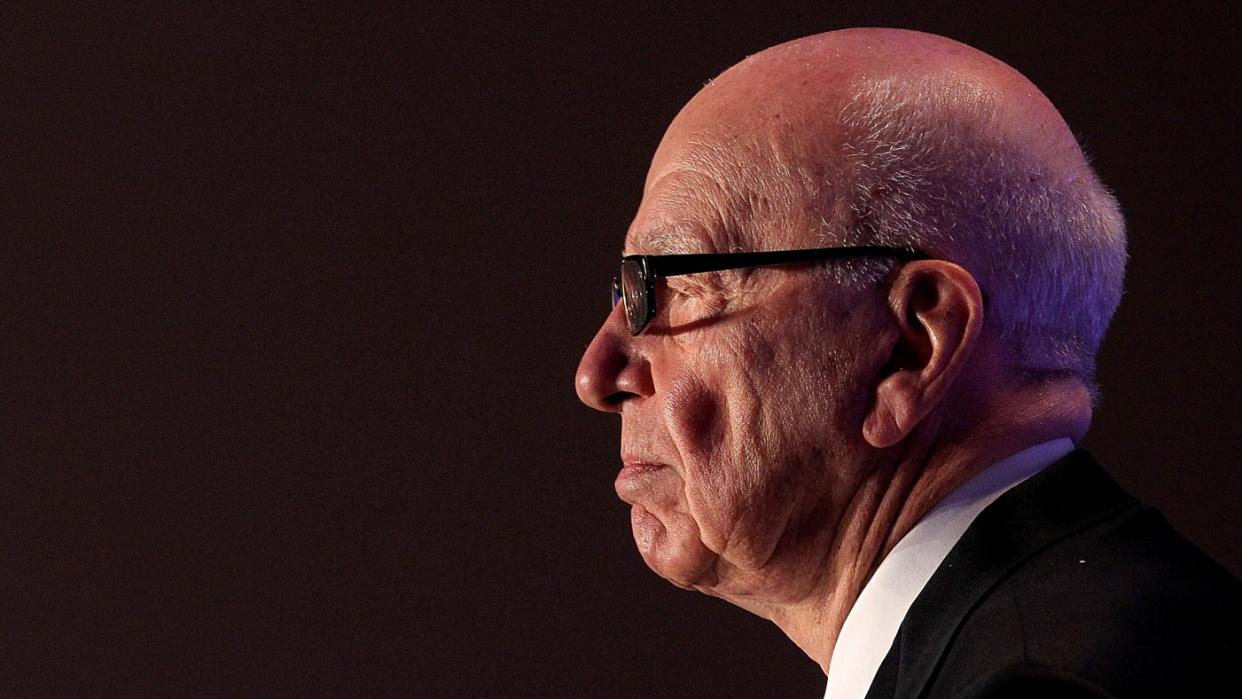Rupert Murdoch steps down: a legacy of power and scandal

- Oops!Something went wrong.Please try again later.
Rupert Murdoch is stepping down as chairman of News Corp and Fox Corporation, with his son Lachlan set to head up both companies.
In a memo to employees, Murdoch said "the time is right" for him to take on "different roles" after a "nearly 70-year career in which he grew a $25 billion media empire".
Now aged 92, he will move into a new role as chairman emeritus of both News Corp (owner of The Times and The Sun) and Fox Corporation (owner of Fox News), pledging to continue to be “involved every day in the contest of ideas” at his newspapers, television networks and book publishers.
'Bold, brilliant, visionary leader'
Some staffers "expressed mild shock" that Murdoch had not only "finally pulled the trigger" on his departure, but at the tone of his "barn-burning" letter, said the Daily Beast.
He used the memo to not only celebrate the successes of his media empire but to rail against "elites" who he said have "open contempt for those who are not members of their rarefied class".
"Most of the media is in cahoots with those elites, peddling political narratives rather than pursuing the truth," Murdoch wrote.
Such comments "may come across as more than a bit ironic to his critics", continued the site.
"Hail Rupe! He built a media empire vast enough to intimidate politicians on every continent."
In the pages of The Times, which Murdoch bought in 1981, politicians and journalists paid tribute to the formidable media mogul and his decades-long influence over the media and political landscape.
"Hail Rupe!" said former prime minister Boris Johnson, who said Murdoch had not only "built a media empire vast enough to intimidate politicians on every continent" but also "did more than any press baron in the last 100 years to promote the cause of the global free media that is indispensable for democracy and progress".
Piers Morgan, who once edited the now defunct News of the World for Murdoch and is now a presenter for News Corp's TalkTV, described him as a "bold, brilliant, visionary leader whose audacity and tenacity built a magnificently successful global media empire".
'There won't be another Rupert Murdoch'
"There won't be another Rupert Murdoch," said Andy Coulson, the former News of the World editor who was jailed in 2014 for his role in the phone hacking scandal – one of the most damaging periods in British journalism and for which Murdoch's company was forced to pay more than £1 billion in damages to victims.
Murdoch was a "risk-taking entrepreneur", said Coulson in The Spectator, but those working on his newspapers will now inevitably be asking: "How long have we got?", he continued.
"Rupert's departure will accelerate the inevitable countdown of doom [for print journalism]."
For print journalism, "Rupert's departure will accelerate the inevitable countdown of doom", said Coulson. His son Lachlan is certainly a "news man" but he is also a "pragmatist" with tough decisions ahead of him.
Indeed, "when Rupert goes to the great newsroom in the sky", it seems likely that the majority of his UK newspapers will be put up for sale, said Andrew Neil, who edited Murdoch's The Sunday Times from 1983-94, in the Daily Mail.
What Murdoch leaves behind is "a media and political age that he himself has shaped", said columnist Jane Martinson in The Guardian.
But it is not a legacy of which he should be proud. It is "an age in which norms are shredded, and the powerful have money and access sufficient to dictate the wants and desires of people’s lives", Martinson continued.
He ended his departing letter by urging his staff to "make the most of this great opportunity to improve the world we live in". Martinson concluded by saying: "That, over the decades, was his opportunity. Who can honestly say he took it?"

